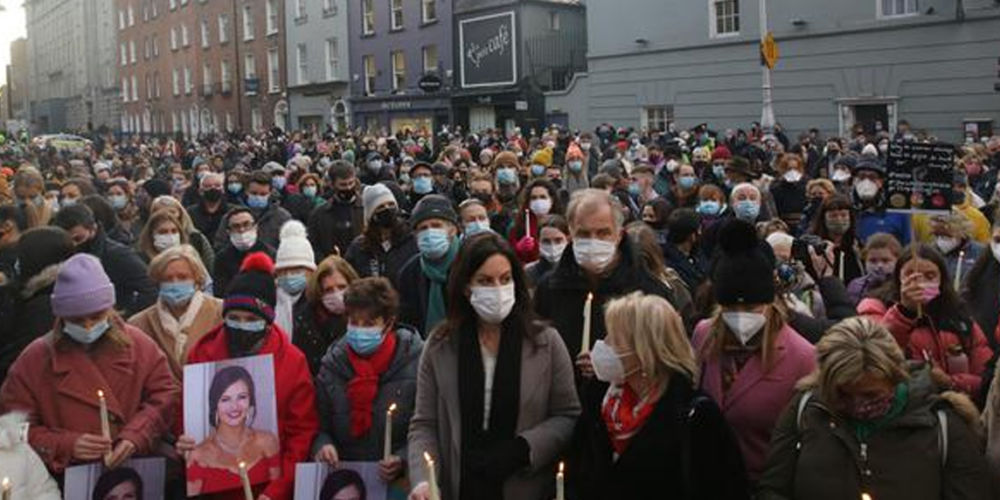The murder of Aisling Murphy on 12 January on a walking trail known as Fiona’s Way (in memory of the missing woman Fiona Pender) was the most recent case of femicide in Ireland. Women can’t feel safe while walking in the dark, have to watch their drinks in bars, and now can’t feel safe jogging at 4 p.m.
Following the murder many women have spoken out against violence against women by men, which has resulted in a trending hashtag “not all men.” People also took to blaming immigration for this violent attack.
Aisling Murphy was not murdered because of high immigration levels or immigration existing but because a man believed he was superior to a woman. The problem is not immigration but patriarchy.
The 20th of January was the anniversary of the murder of Urantsetseg Tserendorj, who was murdered on her way home from work. She was murdered during the lockdown of the pandemic, when many people had to work from home; however, she had to continue working as a cleaner through the lockdown. Working-class women should feel safe walking home from their job.
It isn’t all men, but it is enough men for women to be afraid of their partners. During the covid-19 pandemic reported cases of domestic violence rose by 40 per cent. Between 2019 and 2020 more than three thousand calls about domestic abuse were marked as cancelled. This lack of action to respond to women being abused in their own home shows the lack of empathy from the state for mainly working-class women.
But it’s not just the men who are attacking women: the state is also to blame for this. Two men getting out on bail for €200 after beating a teenage girl is a clear sign of the state not caring about victims. Josepha Madigan TD (Fine Gael) said, “The Gardaí are doing the best they can”; but are three thousand unanswered domestic violence reports enough?
Gardaí have also been involved in systematic patriarchal abuse. Just five years ago Dara Quigley took her own life when a video of her circulated on the internet. The origins of this video were from a Garda Whatsapp group chat. It was recorded when a guard rewound CCTV footage and recorded it—a clear disregard for Dara, who was having a psychotic episode. This guard was dismissed from the force but was never charged with any crime.
Two years ago an on-line messaging app called Discord was used to share thousands of intimate images of Irish women and girls. With the evidence provided as screenshots as well as folders shared on line, it was clear that laws were broken; however, the Garda commissioner simply said that there was no evidence of a crime being committed.
Ireland has a history of violence against women. One only has to look at the Magdalene laundries and how long they were allowed to operate to see how the Irish state has perpetuated violence against women. These places of imprisonment for young single mothers and the daughters of those mothers were run for profit by the Catholic Church, while the girls who were forced to work were unpaid. The official figure for the number of women affected by these institutions is 10,000; however, the report of the interdepartmental committee says this is probably an underestimate. The conditions in those institutions were much like a prison, including such dehumanising practices as being assigned numbers.
We know what the issues are, but what are the solutions? The solutions are not panic buttons, more guards, or women avoiding times of the day or parts of towns or cities. The issue is not what women do but what men and the state do. Women who are trapped at home with an abuser need state-paid time off to go through any legal requirements to get out of partnerships such as these. For those in these situations with children the state needs to make available state-funded child-care facilities that working mothers can avail of.
Those in positions of power, such as the Garda commissioner, need to hold those who are under their authority accountable; and those above the commissioner need to ensure that this is being done. A socialist state that puts the emphasis on the needs of the workers and on the safety of working women is the only solution to the violence women face in this country. No citizen of Ireland should live in fear, and no woman should worry if a stranger she passes by on the way to or from work will be a threat.






